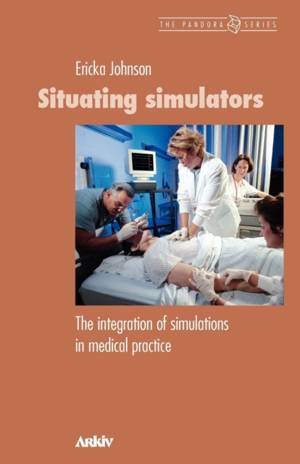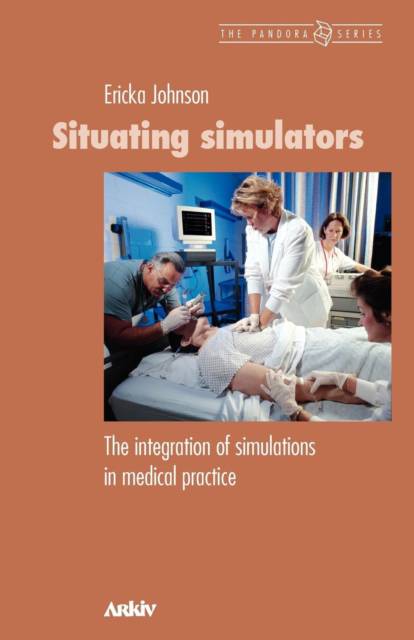
- Afhalen na 1 uur in een winkel met voorraad
- Gratis thuislevering in België vanaf € 30
- Ruim aanbod met 7 miljoen producten
- Afhalen na 1 uur in een winkel met voorraad
- Gratis thuislevering in België vanaf € 30
- Ruim aanbod met 7 miljoen producten
Zoeken
Situating Simulators
The Integration of Simulations in Medical Practice
Ericka Johnson
Paperback | Engels
€ 41,45
+ 82 punten
Omschrijving
Technically advanced machines are not automatically useful teaching tools. Ericka Johnson has studied computer simulators and their integration into medical education. She has analysed videotape of simulator sessions, interviewed instructors and students, and observed students practising medicine, both on the simulators and in hospital wards. Starting from the understanding that learning is situated in practice, she examines simulations and the parallels they have with the existing learning practices that the students encounter in their medical apprenticeship. Johnson shows how instructors reconstitute patient bodies and medical practices in simulations. She looks at how the simulations are situated in the context of the teaching hospital and the identity construction present in both the clinical clerkship and the simulations. Her work suggests ways in which simulations can and should extend beyond the teaching of specific skills, to be made relevant to the medical training.
Specificaties
Betrokkenen
- Auteur(s):
- Uitgeverij:
Inhoud
- Aantal bladzijden:
- 226
- Taal:
- Engels
Eigenschappen
- Productcode (EAN):
- 9789198085402
- Verschijningsdatum:
- 13/12/2012
- Uitvoering:
- Paperback
- Formaat:
- Trade paperback (VS)
- Afmetingen:
- 140 mm x 216 mm
- Gewicht:
- 290 g

Alleen bij Standaard Boekhandel
+ 82 punten op je klantenkaart van Standaard Boekhandel
Beoordelingen
We publiceren alleen reviews die voldoen aan de voorwaarden voor reviews. Bekijk onze voorwaarden voor reviews.











